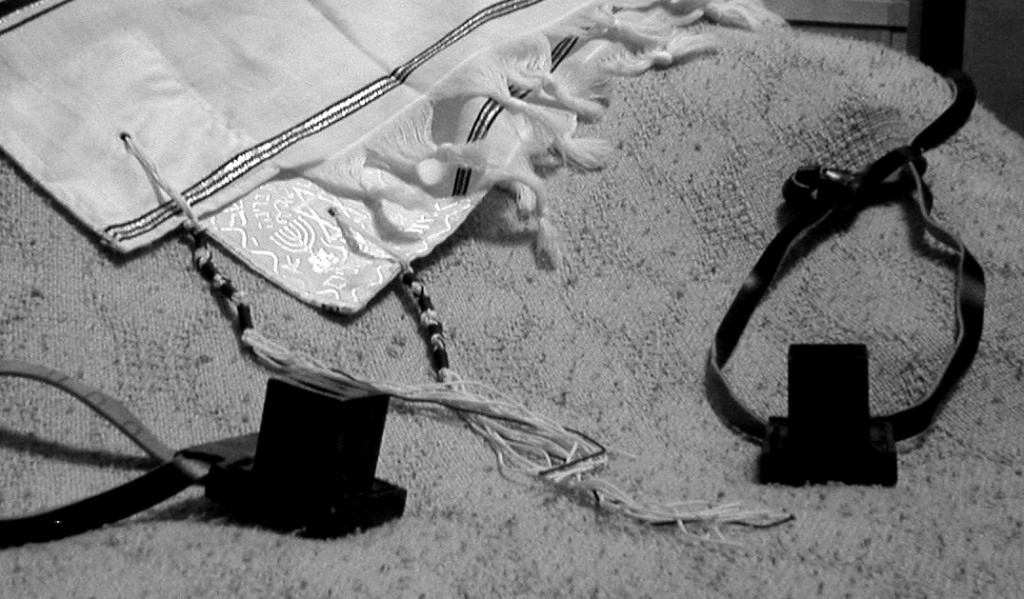The Secret Codes in Matthew: Examining Israel’s Messiah, Part 18: Matthew 22:41-23:39, by Kevin M. Williams
 Both the tefillin and the tzit-tzit are worn while praying (though there have been some in every age who wear them every waking moment). According to the oral law, the tefillin and tzit-tzit are supposed to be the same regulated size as everyone else’s; the spiritual principle being that everyone stands equal before God in prayer.
Both the tefillin and the tzit-tzit are worn while praying (though there have been some in every age who wear them every waking moment). According to the oral law, the tefillin and tzit-tzit are supposed to be the same regulated size as everyone else’s; the spiritual principle being that everyone stands equal before God in prayer.
These regulations regarding the length and appearance of both the tefillin and tzit-tzit were set by Pharisees, set with good and godly intentions. The length and appearance of these were to be the same because all people are equal before God in prayer.
In Yeshua’s day, the very wealthy Pharisees had taken to making grander tefillin, larger and more ornate, and longer tzit-tzit. Their scholarly ancestors had set the doctrine, but they had broken their own rules. As Yeshua said:
“But they do all their deeds to be noticed by men . . . And they love the place of honor at banquets, and the chief seats in the synagogues, and respectful greetings in the market places, and being called by men, Rabbi” (Matthew 23:5-7).
These religious leaders lost sight of the godly principles set down by their forefathers, and in their own sense of self-importance decided they were “more equal” in prayer than the common man, and so they made their tefillin and phylacteries longer. The people, according to Yeshua’s instructions, were to follow the rules set down, but not to become like those Pharisees who “bent” the rules.
Recognizing the potential of leaders and the rich to want to be noticed by men, Yeshua sets spiritual precedence here as well that becomes part of the New Testament doctrine. It becomes official Halakhah for believers in James 2:2-4:
For if a man comes into your assembly with a gold ring and dressed in fine clothes, and there also comes in a poor man in dirty clothes, and you pay special attention to the one who is wearing the fine clothes, and say, “You sit here in a good place,” and you say to the poor man, “You stand over there, or sit down by my footstool,” have you not made distinctions among yourselves, and become judges with evil motives?
In other words, if a wealthy man comes into the assembly (literally “synagogue”), do not give him special recognition and thereby, potentially feed his need to be “noticed,” and remember that God does not show partiality.
The dangers in Yeshua’s warning demonstrate that those like the Pharisees who want to be noticed by man may have lost their way. Those who greedily love honor may have already gotten the entirety of the honor they deserve, and when they stand before the Judge of all the earth, they may find themselves lacking true and eternal honor from the King of all creation.
Category: Biblical Studies, Pneuma Review, Summer 2005


